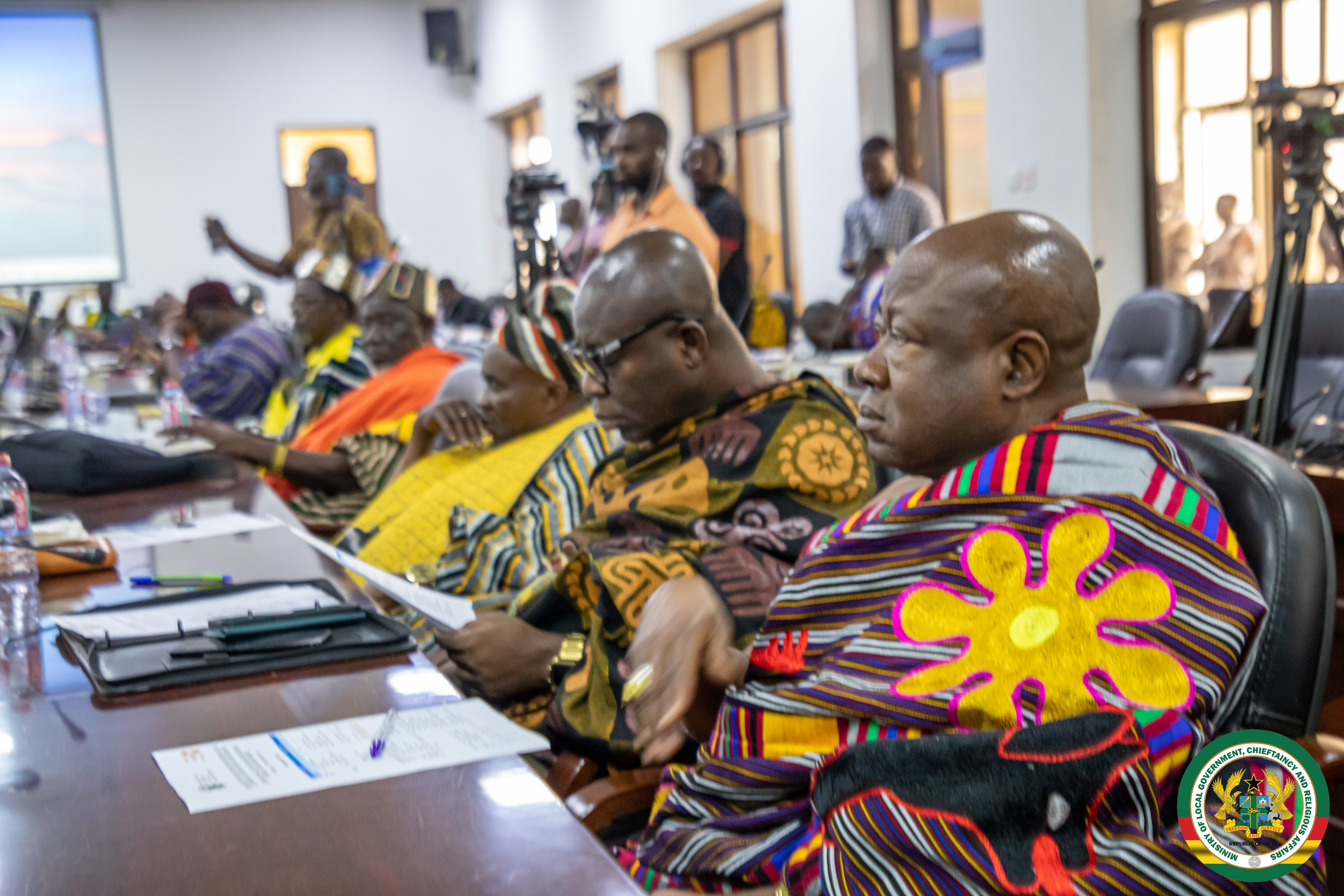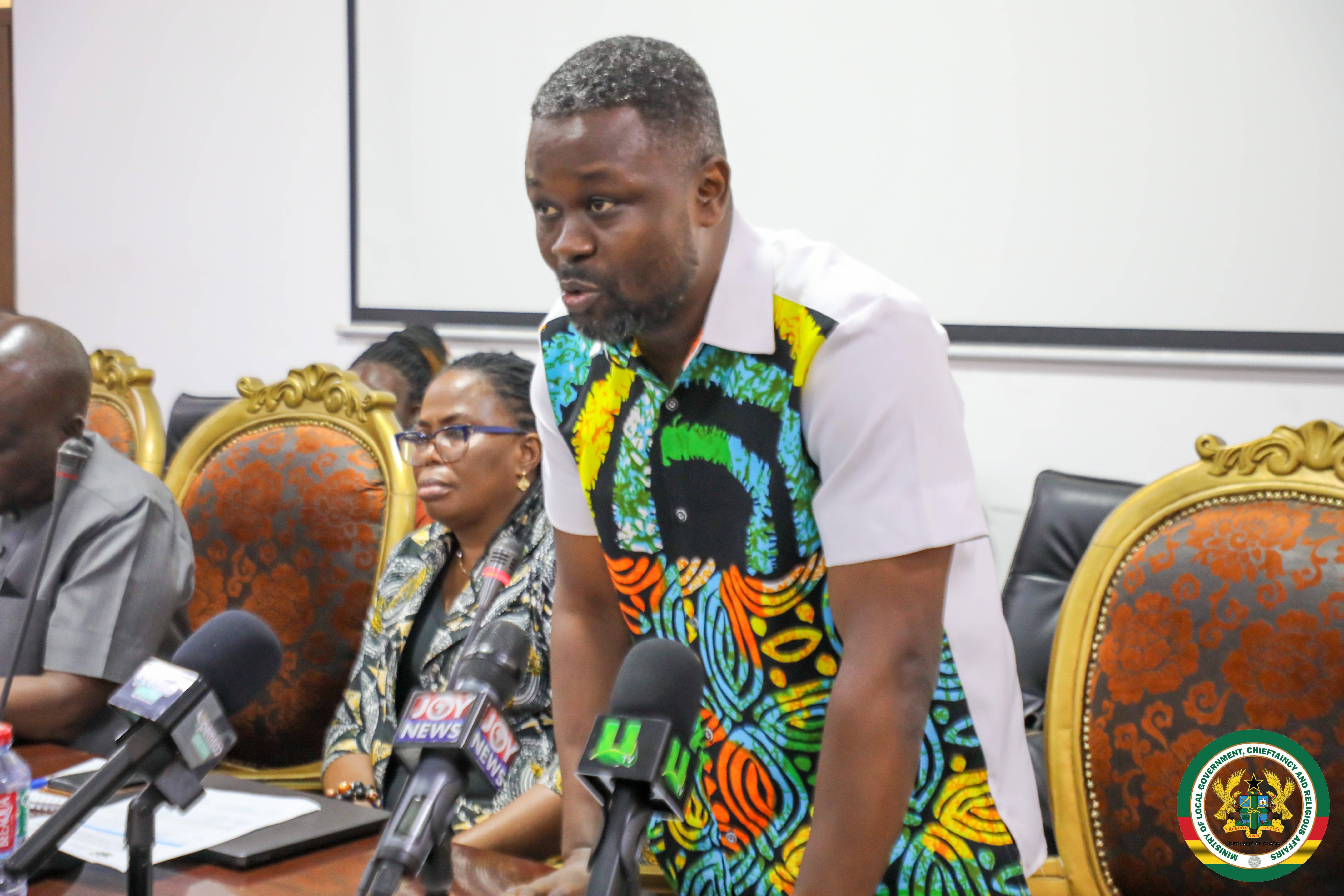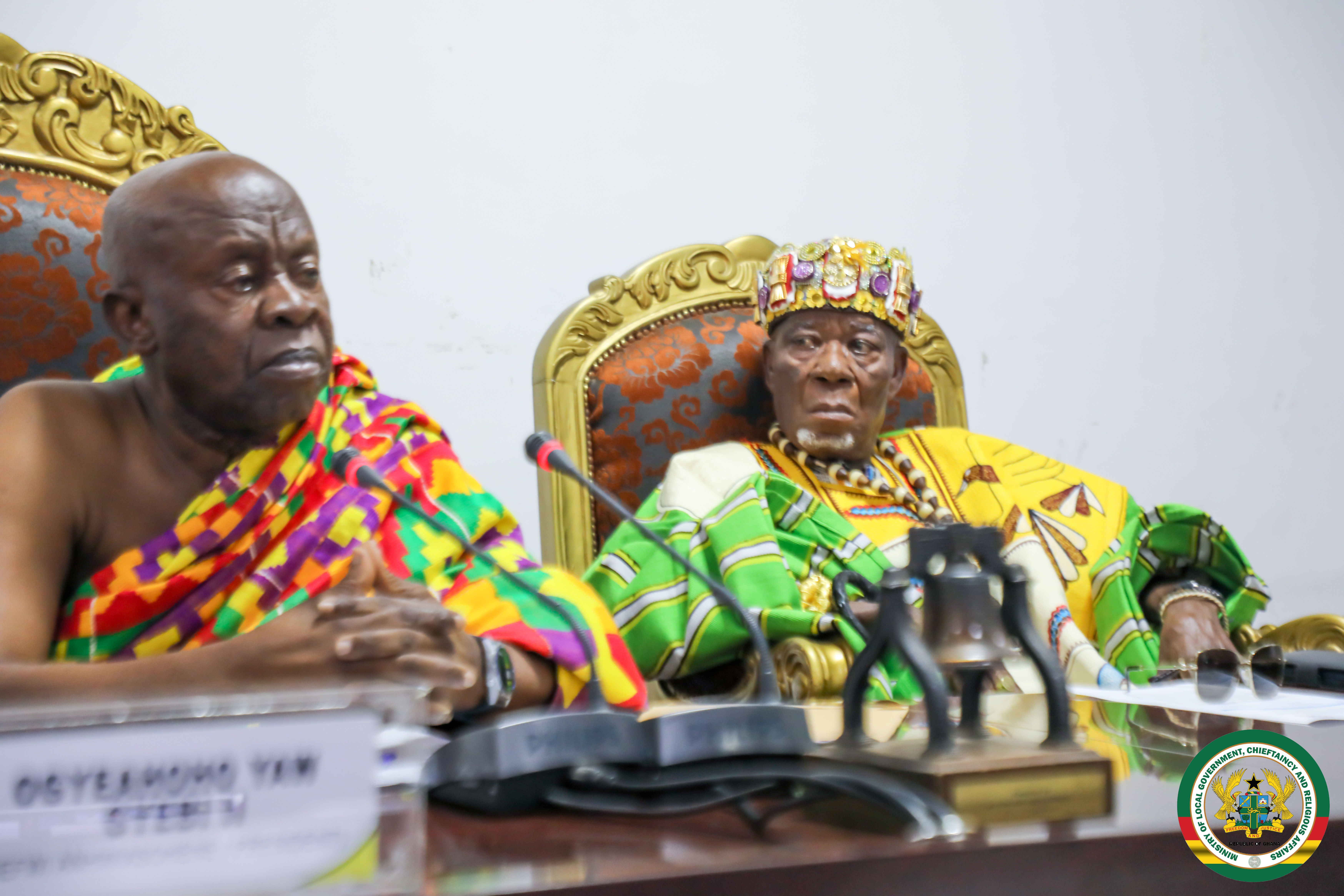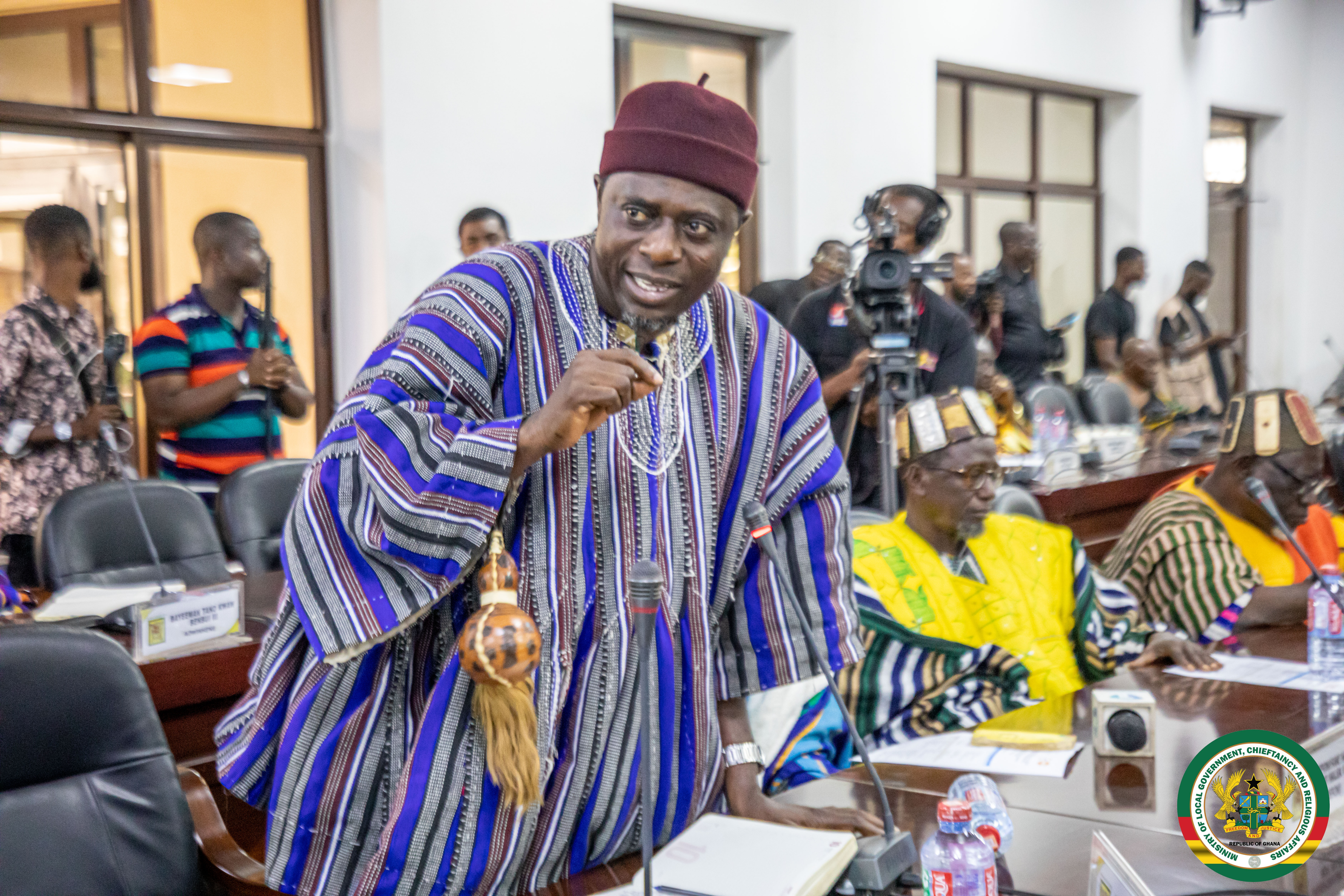The Minister for Local Government, Chieftaincy and Religious Affairs, Hon. Ahmed Ibrahim, has called on traditional leaders to play a central role in the fight against gender-based violence (GBV) and child marriage in Ghana.
In a speech read on his behalf during an engagement with members of the National House of Chiefs, held at the House’s Conference Hall in Manhyia, Kumasi, he emphasized on the critical role Chiefs have in their traditional areas and the urgent need for them to use these influence to promote better practices and promote development.
The meeting, which was organised in collaboration with the United Nations Population Fund (UNFPA), forms part of a series of training the Ministry was embarking on with the UNFPA which focused on gender equality, harmful cultural practices, and measures to protect children’s rights.
Hon. Ibrahim noted that while Ghana has policies and laws to curb child marriage, the practice persists in some areas, sometimes with the involvement of traditional leaders. He stressed that under Article 273(5) of the 1992 Constitution, the National House of Chiefs has the mandate to evaluate traditional customs and eliminate those that are outdated and socially harmful.
He was of the view that, although ending child marriage was a complex challenge requiring shared responsibility, Traditional leaders, as custodians of culture, have both the moral authority and the constitutional mandate to challenge harmful practices and promote positive values.
The Minister stated that the Ministry’s partnership with UNFPA and the Obaapa Development Foundation under the Global Programme to End Child Marriage is targeted at empowering traditional leaders, promoting social norms that reject child marriage, strengthening advocacy, and sharing best practices.
He revealed that through this engagement, seven paramount areas , such as; Anfoeaga, Bongo, Agona Nyarkom, Akwamu, Ave Have, Ogua, and Avatime have declared an end to child marriage and these declarations demonstrate the critical role of traditional authorities in changing community attitudes toward GBV and harmful practices.
Hon. Ibrahim commended UNFPA for its support and urged more traditional areas to make similar commitments to ensure sustainable progress, adding that lasting change depends on community-led efforts.
In his remarks, the President of the National House of Chiefs, Ogyeahoho Yaw Gyebi III appealed to the members to partner this project and speak against it at their various traditional areas. He also charged the UNFPA to invest in the education of girls who survivor from Child Marriage from secondary through to tertiary, rather than just giving them a skill.
He then pledged his support to cater for the tuition fee of a survivor who shared her story during the meeting and the progress she has made so far in the skill she has been trained in.
The Country Director for UNFPA, Dr Winfred Ochan thanked the Ministry for it continuous support in the fight against GBV and child marriage over the years and expressed the hope that Chiefs will make the declaration of ending child marriage at their various traditional area. He mentioned that his organisation together with Obaapa foundation will support with the needed sensitization drive.
Touching on the recommendations made by the President of the National House of Chiefs and other members of the House, he gave the assurance that the UNFPA will consider training survivors through secondary and tertiary education while complimenting it with a skill that will equip them with financial stability.
Source : Chantal Aidoo
Public Relations Unit, MLGCRA



